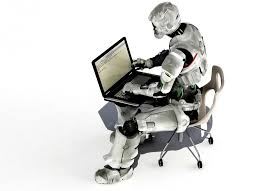
Breaking News
 Iran (So Far Away) - Official Music Video
Iran (So Far Away) - Official Music Video
 COMEX Silver: 21 Days Until 429 Million Ounces of Demand Meets 103 Million Supply. (March Crisis)
COMEX Silver: 21 Days Until 429 Million Ounces of Demand Meets 103 Million Supply. (March Crisis)
 Marjorie Taylor Greene: MAGA Was "All a Lie," "Isn't Really About America or the
Marjorie Taylor Greene: MAGA Was "All a Lie," "Isn't Really About America or the
 Why America's Two-Party System Will Never Threaten the True Political Elites
Why America's Two-Party System Will Never Threaten the True Political Elites
Top Tech News
 How underwater 3D printing could soon transform maritime construction
How underwater 3D printing could soon transform maritime construction
 Smart soldering iron packs a camera to show you what you're doing
Smart soldering iron packs a camera to show you what you're doing
 Look, no hands: Flying umbrella follows user through the rain
Look, no hands: Flying umbrella follows user through the rain
 Critical Linux Warning: 800,000 Devices Are EXPOSED
Critical Linux Warning: 800,000 Devices Are EXPOSED
 'Brave New World': IVF Company's Eugenics Tool Lets Couples Pick 'Best' Baby, Di
'Brave New World': IVF Company's Eugenics Tool Lets Couples Pick 'Best' Baby, Di
 The smartphone just fired a warning shot at the camera industry.
The smartphone just fired a warning shot at the camera industry.
 A revolutionary breakthrough in dental science is changing how we fight tooth decay
A revolutionary breakthrough in dental science is changing how we fight tooth decay
 Docan Energy "Panda": 32kWh for $2,530!
Docan Energy "Panda": 32kWh for $2,530!
 Rugged phone with multi-day battery life doubles as a 1080p projector
Rugged phone with multi-day battery life doubles as a 1080p projector
 4 Sisters Invent Electric Tractor with Mom and Dad and it's Selling in 5 Countries
4 Sisters Invent Electric Tractor with Mom and Dad and it's Selling in 5 Countries
Linguists now working to replace human journalists with robots that can write the news

Linguists now working to replace human journalists with robots that can write the news

(Natural News) Can robots write our news? Researchers from the Media Management and Transformation Center (MMTC) at Jönköping International Business School mean to answer this question by launching a news site project that is entirely facilitated, managed, and propagated by robots. The project, called DPer News (Digital Personalization of the News), comes with the support of the Knowledge Foundation.
"DPer News is about how we can make news stories that are not just cheap and convenient, but more meaningful and personal. It worries me that just because we can get robots to mine and condense data, that's all we'll do," mentions Professor Daved Barry. This is in response to previous assertions that robots are only useful for service industries. (RELATED: Robots to take over jobs in human service industry, increasing the percentage of unemployed Americans.)
Project Director, Mart Orts says, "The angle of digitalization is very much in demand today, and companies are eager to get help to transform. The general question is how can algorithms replace humans in repetitive professions? Journalism may not seem like a repetitive job, but when it comes to writing about finance and sports, it very well can be."
To date, robots are only used as assistants, helping journalists find and analyze data. The human journalist still has to write the news. DPer News wants to robotize methods, allowing for more interesting news. "Robots can target you and quickly give you the content you want, like the latest sports scores. But what about giving you content that would surprise you, that would help you think in out-of-the-box ways?" asks Professor Barry.
The project would include experts in data mining, creativity and innovation, news company Hallpressen, and computer consultants Infomaker and PDB. DPer News has received a grant from Vinnova.
The future of journalism
Journalism is a very human profession. So much can be gleaned by the written word. Artists thrive in this environment, using this means of communication as a way to express themselves and their personal views. Herein lies the problem: Whether intended or not, personal bias seeps out in articles that should otherwise be clean and objective. [Editor's note: Nearly all mainstream media journalists are already "robots" who do nothing more than restate official propaganda. They don't being any real humanity to their jobs in the first place. If you replace them with robots, nobody could even tell the difference.]
Advancing technologies have shifted the way society operates. Current economic and political climates have intensified the need for more objective data. Artificial intelligence in journalism in the form of "news-bots" can provide the solution.
In as early as 2013, AI-powered journalism was taking root in the minds of scientists. Business strategists saw the potential for a highly intelligent, artificial system that could come up with insightful and well-researched material. Moreover, the system could generate a seamless bridge between humans and machines. Scientists and engineers worked to design a technological base that would perform these functions.



